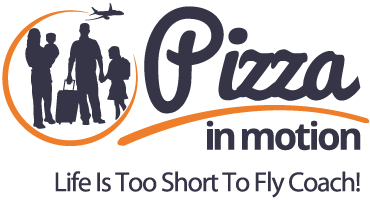Travel Demand Is Slowing Down This Fall. What Should We Expect?

Good morning to those flying on United flight XXXX heading to Washington-Dulles this morning.”
It was a fairly benign announcement I’ve heard literally hundreds of times, especially departing from Las Vegas, a frequent destination for me. The next part surprised me, “We have about 30 open seats on today’s flight.”
Pardon me? Yes, I heard right. There were a whole bunch of empty middle seats on my recent flight home from Vegas. That would have been unheard of the past couple of years. But, it’s one of a handful of signs that demand is, in fact, down. But, what does that mean? What should we expect? Let’s talk about it a bit.
Air Travel Demand Softens, But Airlines Reduce Growth
Demand for airline travel is definitely down in the latter part of 2024. If you read the forecasts of the most profitable US airlines, both United and Delta talk about upcoming weakness. The general prediction is that leisure travel is cooling, while business travel continues to grow. This seems to be reflected in American Airlines’ results and predictions, since they have been more heavily focused on leisure travel after a gutting of their business sales team over the past couple of years.
As an aside, I think it’s worth reflecting on the proclamations over the past few years that “business travel is dead” and “business travel will never recover to what it once was”. I heard these announcements so many times during and after the pandemic but never really believed them. I’ve wondered if my own bias was clouding my judgment, but it seems that business travel continues to grow/recover as an important sector for airlines.
Business travel isn’t the same as it was in 2019. It’s also not the same as it was in the 1990s. Business continues to evolve, as does business travel. Even with the onslaught of AI and AI-related tools, there’s no substitute for an in-person meeting in certain situations. Those situations will change over time, but I believe there will continue to be plenty of “business” reasons to hop on a plane.
This fall, it seems clear leisure travel demand will be down. That means we’ll see lower prices on flights, right? Not so fast. Some of the biggest airlines have already revised downwards their growth projections for the second half of the year. At the same time, there has been discussion of reducing capacity as well. Some of that capacity reduction will be a bit more “natural”, as Boeing struggles to deliver planes on schedule and Airbus continues to have engine issues.
But, don’t be surprised if airlines also artificially reduce capacity. That might mean smaller planes on some routes, but it’s more likely to manifest itself in fewer frequencies on certain routes. Those capacity constraints are likely to keep prices higher on many routes.
Hotel Chains Seem To Paint A Rosier Picture, Except In China
Meanwhile, hotel chains seem to be indicating that they expect to see an increase in RevPAR (Revenue per available room, a popular metric used in the hotel industry) in the second half of the year. A number of chains note negative RevPAR growth in China, shorthand for the fact that China continues to struggle with economic recovery.
At the same time, the largest hotel chains are growing. Hilton and Marriott collectively added almost 40,000 rooms in the second quarter of 2024 and plan for similar expansion in the second half of 2024. Hyatt announced they increased the membership size of their loyalty program 20% over last year.
How do hotels see such a rosy picture?
Business travel, at least in part, is likely leading to some of the bullish predictions on revenue growth. There’s a bit of softness in the predictions for the US and Canada. However, that softness doesn’t really mesh with a true slowdown in travel (which seems likely).
Business travelers generally don’t purchase discounted packages for travel, and also shy away from lower non-refundable hotel rates. Elite members of loyalty programs may be less likely to pay for breakfast (and may cost hotels a few more bucks in that regard), but enough business travelers use hotel amenities such as room service that in a number of cases, hotels are happy to have elite road warriors as a bigger part of their customer mix.
How Do We Take Advantage Of Slowing Travel Demand?
It’s worth noting that the very likely Fed interest rate decreases may impact how much softness we see in travel demand. These things take time to work through the system, but lower interest rates should be a boon for travel demand.
In some cases, I’m already seeing signs of softness. And, it’s not just in the announcement about empty seats on my flights. Our family visits Orlando quite often. Mileage award seats have been pricey heading to Orlando for a couple of years now. Recent searches look more like this:
It’s not a “one size fits all” situation right now. I’ve seen reduced prices on my business flights to Vegas, but they’re still quite high. On other routes, to places like Chicago and Los Angeles, it’s very much a mixed bag of fares right now. Airlines are better than ever at matching capacity to demand, and they’re getting a bit of “help” in the current downturn with some of the airplane issues previously discussed.
My crystal ball is in the shop, but I wouldn’t be surprised if airlines are able to tailor parts of their schedule to more closely match capacity with demand. That means the current “deals” we’re seeing on both cash and mileage fares may not be around for long.
On the hotel side, I actually think that we’ll see a reasonable amount of award rooms available for reasonable redemption rates this fall and winter. It’s just harder for hotels to reduce capacity in periods of slower demand. It’s possible that some properties have recovered enough since COVID that they want to focus on renovating guest rooms in 2024 and 2025. That’s a common strategy for hotels during softer periods of demand. Other than some markets where supply is significantly constrained (I’m looking at you, Manhattan), I expect hotels to have available award rooms this fall in greater supply than at any point in the past two years.
If you’re thinking about how to plan your next vacation, I’d be leaning into a deal on flights if you see one. Many airlines have made it easier to get a refund if the price of your airline ticket goes down, whether you’re paying with cash or miles. If you have flexible points such as Chase Ultimate Rewards, Bilt Rewards or American Express Membership Rewards, I’d probably consider focusing those on a great flight deal first, and then look at hotel pricing afterwards. Flexible currency such as Capital One Venture Miles can also be a great way to save on lodging right now, since it gives you added flexibility on what properties you can stay at.
The Final Two Pennies
Flexibility will be the name of the game this fall and winter. Look for flight deals to help guide where you should plan your next vacation. Chances are you’ll be able to find more lodging deals than flight deals. You may have your heart set on the Caribbean, but cheap flights to Hawaii may be what’s on offer (or vice versa).
Conditions are also a good reminder why you’re better off earning something like Chase Ultimate Rewards or Bilt Rewards than holding a United Airlines or Marriott credit card. Right now, the ability to be flexible with your travel plans may just be the difference between staying home and an affordable vacation.
Want to connect with travel experts and fellow travelers for weekly virtual happy hours and semi-annual meetups?
Join my Slack community!
Did you enjoy this post? Please share it! There’s plenty of ways to do that below.
You can also follow me on Twitter, Facebook and Instagram.
And, I hope you’ll check out my podcast, Miles To Go. We cover the latest travel news, tips and tricks every week so you can save money while you travel better. From Disney to Dubai, San Francisco to Sydney, American Airlines to WestJet, we’ve got you covered!


I flew to Atlanta from DCA last Tuesday afternoon. I was struck by how quiet DCA was. Granted, kids went back to school that week in a lot of places and it was a Tuesday. No trouble finding a seat in the Centurion Lounge. There were several empty seats on my plane. Of course, ATL was a nuthouse when I returned home Thursday evening.
Marshall, I’m not sure there’s a time nowadays where ATL isn’t a nuthouse.
I’m also not sure Manhattan is as constrained as it seems.
I think there’s a level of artificial constraint. Union approval of hotel conversions is certainly slowing down new hotel construction/conversion. I also think some of the legislation around Airbnb yielded higher pricing.